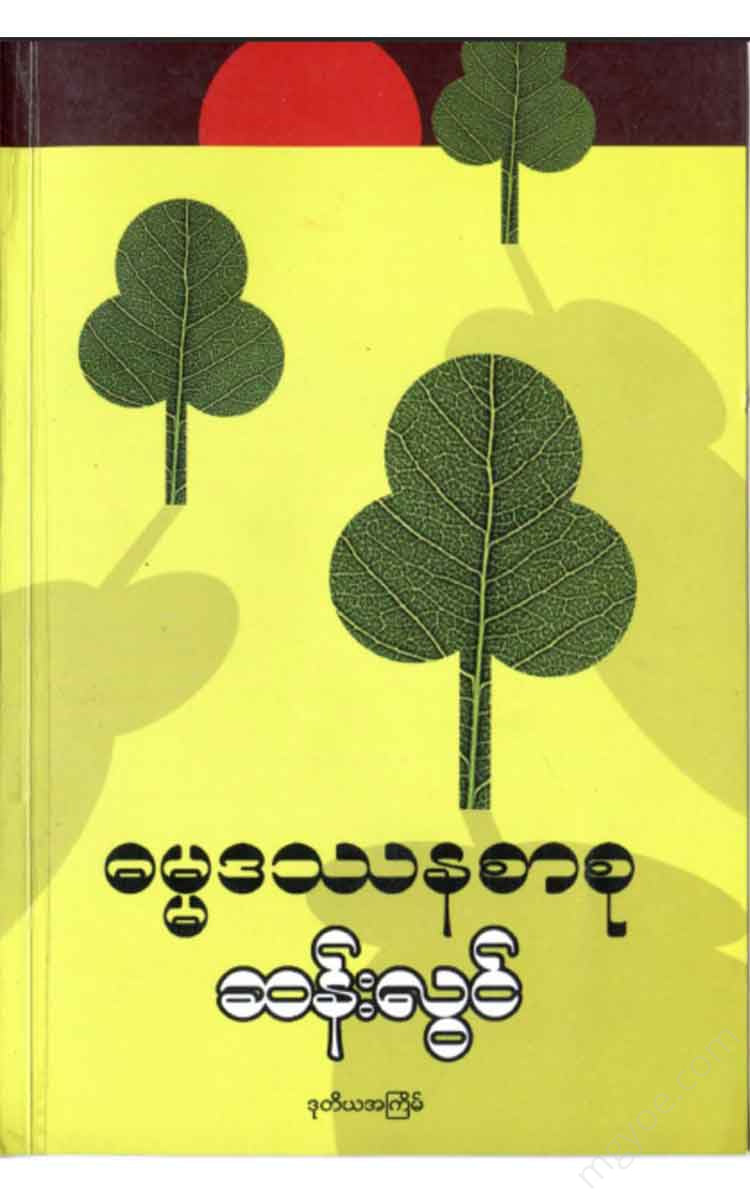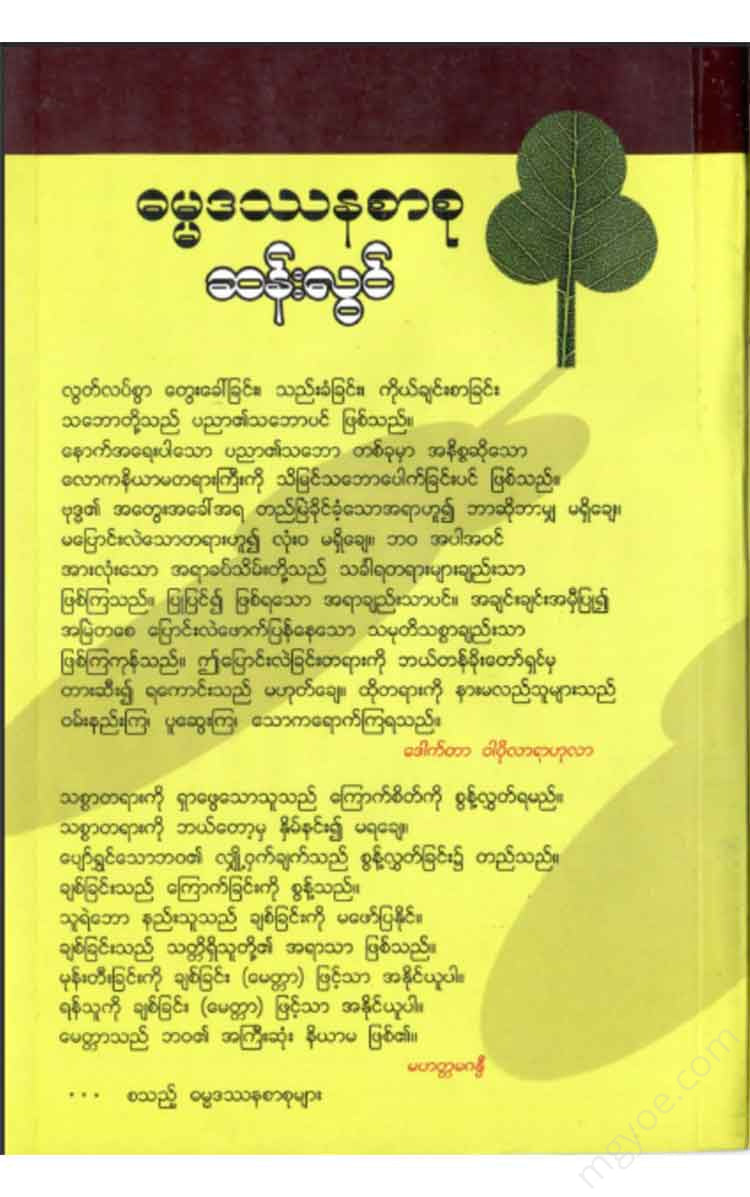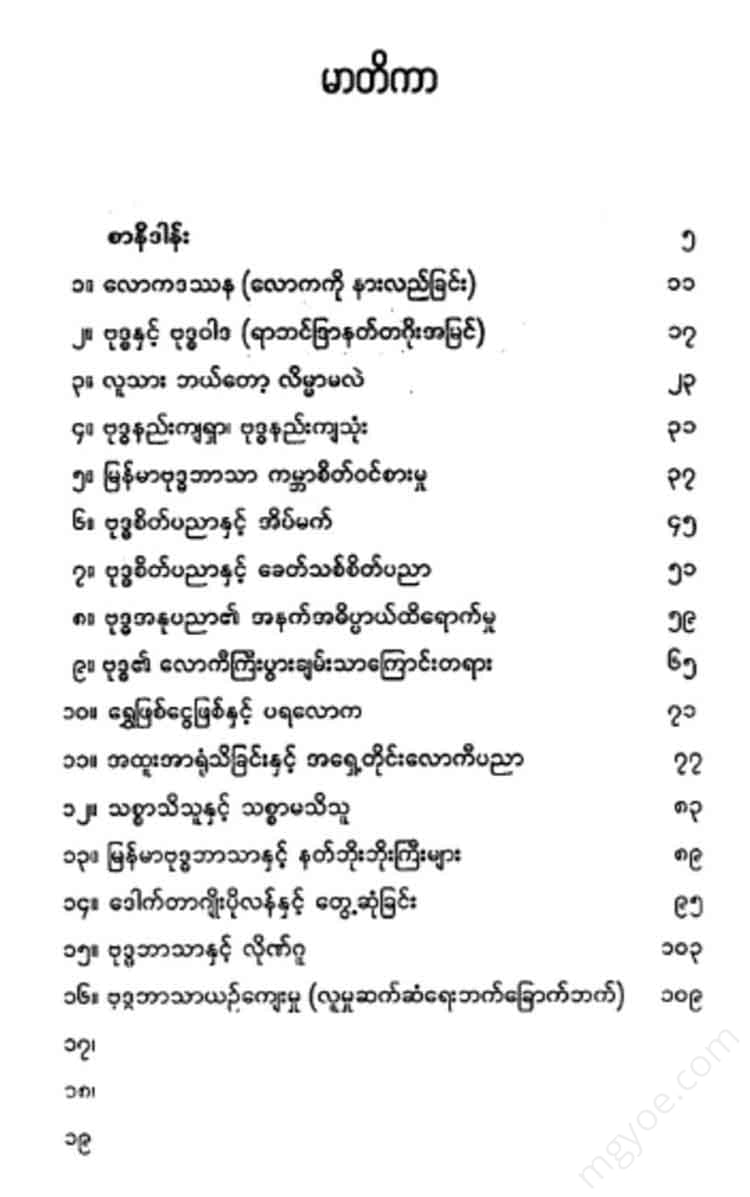Other Websites
San Lwin - A collection of Dhamma philosophy
San Lwin - A collection of Dhamma philosophy
Couldn't load pickup availability
Namo-tassa, the forest of the Bhagavad Gita, the forest of the Arahant, the True Buddha,
Introduction
Reader
I remember the "Dhamma Rukso" well. When I was born, I nurtured the Dhamma Rukso to become a kind of Dhamma philosophy. The nursery of Dhamma philosophy also flourished for a long time.
Dhamma Dasana Sa... What does it mean? You should know it clearly. The meaning of Dhamma is broad. There are many interpretations. If you explain each one individually, it will be difficult to make the meaning clear. I think you can only understand it by summarizing it.
I mean the general meaning. If I had to say it,
I think it should be said that “Dhamma” is the entire nature of the world.
The world is made up of five elements. The physical body and the four mental bodies are the world. In other words, the two aggregates of physical and mental phenomena are the world. That world is called Dhamma. "Dassana" is called vision. However... Dassana does not refer to the physical vision seen with the physical eye (the eye of form), but to the mental vision seen with the eye of Dhamma. The physical eye (the eye of form) can only see the superficial world, which is called by names and rules.
That view should be called the view of samuti-sattva. The philosophical view is the view of Dhamma. It is the view of wisdom. It is the view of the Supreme Being that penetrates and understands. In other words, it is also called the view of Dhamma. Only the view of the Dhamma eye should be called "philosophy." Here, it is still necessary to define the scope of philosophy. Although "philosophy" is the view of wisdom that sees with the eye of Dhamma, that view has not yet transcended the worldly realm.
It should be said only about the insight and insight knowledge that are in the world. The "view of the Dhamma" ends only at the level of the insight of the enlightenment. It should be understood that the "knowledge of the Vedas" is not included in the realm of the Dhamma. The knowledge of the Vedas is a matter of "knowledge of the mind."
It transcends the worldly realm. It is the view that reaches the worldly realm. It is the knowledge of the path, the knowledge of the fruit. Therefore... I would like to say that the word "Dhamma-dassana" should not be confused with the knowledge of the path and the knowledge of the fruit, which is called "Intellectual-dassana".
"The Dhamma-Ruppa" only expressed Dhamma. But it always avoided Adhamma. In its efforts to make Theravada Buddhism, which is called the True Dharma, shine brightly and clearly, it was said to see Dhamma well, see Dhamma correctly, believe in Dhamma, live in Dhamma, love Dhamma, respect Dhamma, cherish Dhamma, worship Dhamma.
I have kept the Yoni Somanathikara in my mind forever. From time to time, I have written Dhamma philosophy in the Dhamma Collection under various pen names. The reason for writing is that the writers who participated in the Dhamma Collection
Articles sometimes contain traditional, non-theological content.
Since only religious views are included, I must admit that when I, as the editor-in-chief, edit and edit to reflect the magazine's policy, if the thoughts and philosophy I wanted were not included, I had to deliberately add them to make them appear.
Sometimes - San Lwin Sometimes - Nanda Min Khaung Sometimes - Aka Pyan Sometimes - Shwe Zan Oo Sometimes - Emondra Sometimes - Jayasiddhi Sometimes - University Aung Hsu Sometimes - Editor Sometimes - Min Tha Lun I had to intervene and write with a sharp pen. Now that I have left the world of sensual pleasures and finally entered the life of a monk, I have once again become a monk, and since I have come across various articles and articles on Dhamma philosophy that I have searched and searched, I have come to the conclusion that it is right to speak honestly. This introduction to the pearl flower is not something fancy, nor is it a classification of pearls, but I have respected the publisher's opinion, and I have trusted and valued it with a smiling face and kindness, and I have allowed it to be published without complaining. May the reader's wishes be fulfilled, If it was enjoyable, the author's wish was fulfilled.





